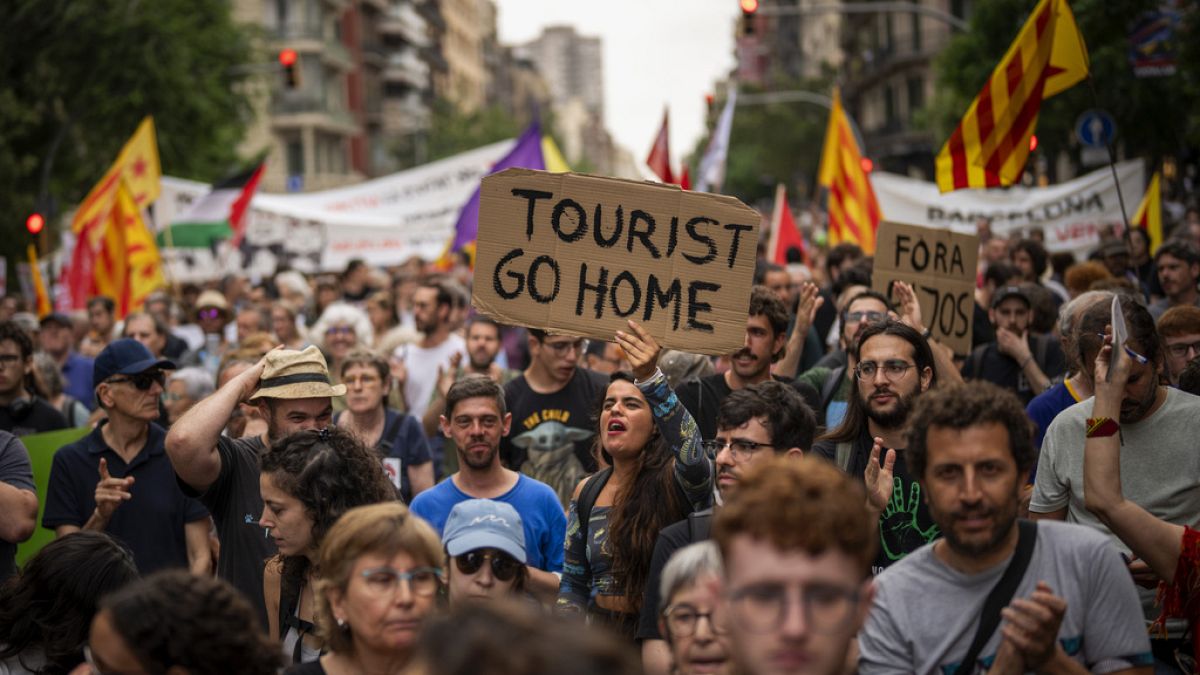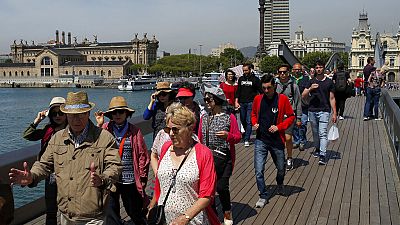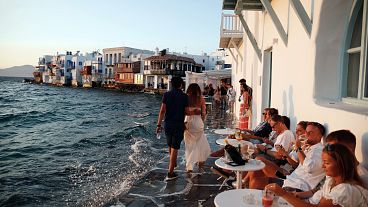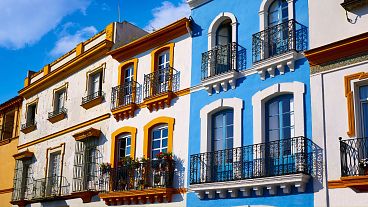The city's mayor has vowed to rid the Catalan capital of its 10,000 tourist apartment licences in the next five years.
Last year the province of Barcelona, home to 5.5 million, received 26 million tourists. The direct economic impact was €12.75 billion.
But for residents, the economic gains are not worth the negative impacts on their lives. With private landlords buying up apartments to rent them out to tourists, it is very difficult for locals to find places to live. Demand, of course, pushes up prices for the housing that is available.
Could banning Airbnbs drive up illegal lets?
The impact of recent protests against overtourism in the city, as well as the city mayor's announcement he will eliminatethe city's 10,000 tourist flats by 2028, have not been well received by the tourism sector.
"Rental prices have risen significantly in the last 10 years, and I believe the administration is trying to cover its shortcomings by using existing apartments for other purposes.
But this is neither going to fix the problem nor is it the solution," says Bonaventura Durall, managing director at Durlet Apartments, a holiday apartment company in the city.
According to the Barcelona Association of Tourist Apartments (APARTUR), tourist apartments account for only 0.77 per cent of the city's housing.
They warn that restricting licences could increase the number of illegal apartments and potentially cause 40 per cent of the city's tourism to disappear.
"Sure, it would have an impact. But I think it would not only affect the hospitality industry, it would have repercussions in all services.
Now in summer, everyone knows that in Barcelona, the local clientele disappears due to the heat and people going away from the city. Tourists basically make up 50% of our clientele," Marc, a restaurant manager, tells Euronews Travel.
Pablo, from Belgium, who is visiting the city with his family, agrees with Marc: "I can understand that people are a bit fed up with tourism, but it keeps the city alive as well.
"So, they need tourism. I think that if it stops, the merchants will struggle more. And I believe that, yes, this is exactly how they will lose quite a lot."
The tourists we spoke in Barcelona said they felt welcome in the city.
Massive demonstration in Mallorca
Thousands of people demonstrated in Mallorca this weekend against what they say are the negative impacts of overtourism.
Organisers of the march say uncontrolled tourist numbers are causing a drop in wages, loss of quality of life, noise and an increase in the price of housing, both to rent and to buy.
Demonstrators marched under the banner 'Let's change course - let's put limits on tourism' in an action that was joined by 110 other civic organisations.
Málaga locals expressed their frustration earlier this year by plastering the centre of the Spanish city with stickers, telling visitors what residents think of them. The Canary Islands are experiencing a similarly drastic situation.
Overtourism isn't just restricted to the Balearic Islands. Many European countries have been imposing tourist taxes, including Venice, which has also banned cruise ships from entering its endangered canal system.
In Amsterdam, authorities and locals have been trying to encourage - mostly British - drunken tourists to stay away through information campaigns and changes in the Red Light District.
While the problem appears to be global, Spain is leading the grassroots pushback.
















